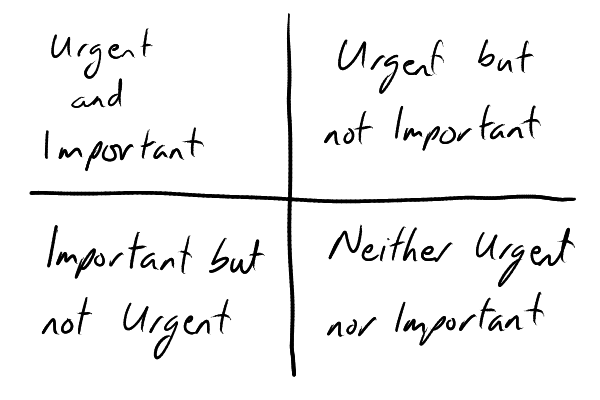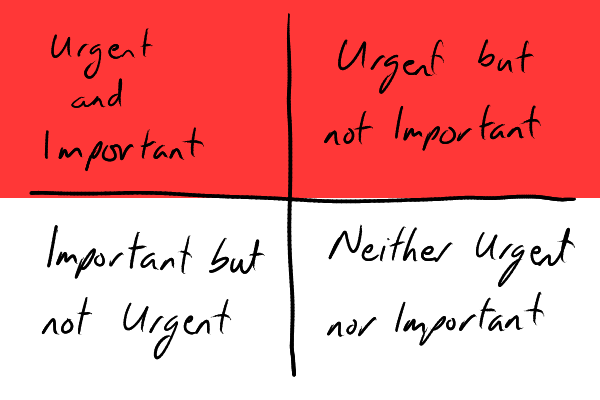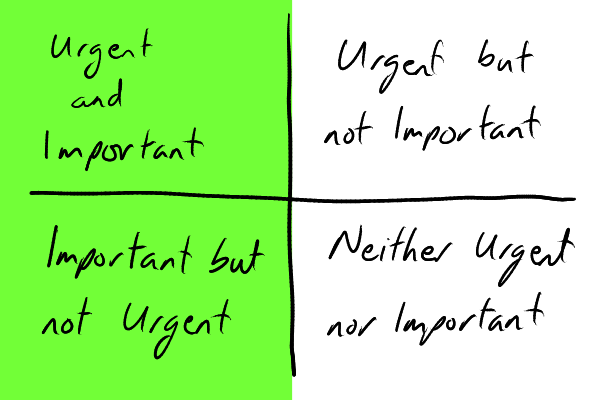U is for Urgent.
When I first matched all the letters to their productivity term, having Urgent for U was one of the easier choices. Now I come to write it, however, I realise that what I'm about to write about is more to do with not urgent than urgent. Can this be "U is for Un-Urgent"?
I think we can get away with "U is for Urgent".
As we've seen, there are many different ways to look at the tasks on your to-do list, and a multitude of ways to filter or partition the tasks up into different groups. One of the ways to arrange them is to look at their urgency - how soon the task needs to be completed - and their importance - how significant the task is.
If you do that then each of your tasks will fall into one of the four categories shown in this urgency-importance matrix:

The urgency of a task decides which row the task falls into, and the importance governs its column. So preparing for this afternoon's conference call is urgent, getting out on your bike for some exercise isn't. Submitting your tax return is important, but photocopying some extra copies of the meeting agenda isn't.
How do we decide which tasks to attack first?
By definition, the urgent tasks are those in which we have the least time before they must be done, so it makes sense to start with them. I think many of us would work through our tasks in this order - left-to-right, then top-to-bottom. If we didn't get all of the urgent tasks out of the way first then there's a chance that we wouldn't get to them all in time.

Urgency is an essential factor in deciding how to arrange our work, but it isn't the most critical. It's a no-brainer to choose to start with the tasks that are both urgent and important, but the quadrant to work on next isn't quite so clear-cut.
If you've got enough time to do everything on your to-do list, then choosing the urgent-but-unimportant tasks before the important-but-not-urgent ones is okay. The problem comes when we have too many things to do, which is the state most of us are in, most of the time.
If you prioritise urgency over importance then when you run out of time it's the important tasks that suffer. We need to acknowledge that not everything is going to get completed, and then as long as the important stuff gets done it's not the end of the world that we missed out on some of the unimportant things.
And if that's the case, then we need to approach our tasks in this order - importance and then urgency. Focus on the tasks in the left column, and only move onto those on the right if we have time.

Obviously, it's not an exact science because tasks don't always fall neatly into one of the four boxes, and even within each box tasks will have different positions. However, comparing one task's position against another's will help you see which task you should be attacking next. As a result, you should find that fewer of the important tasks fall through the cracks.

